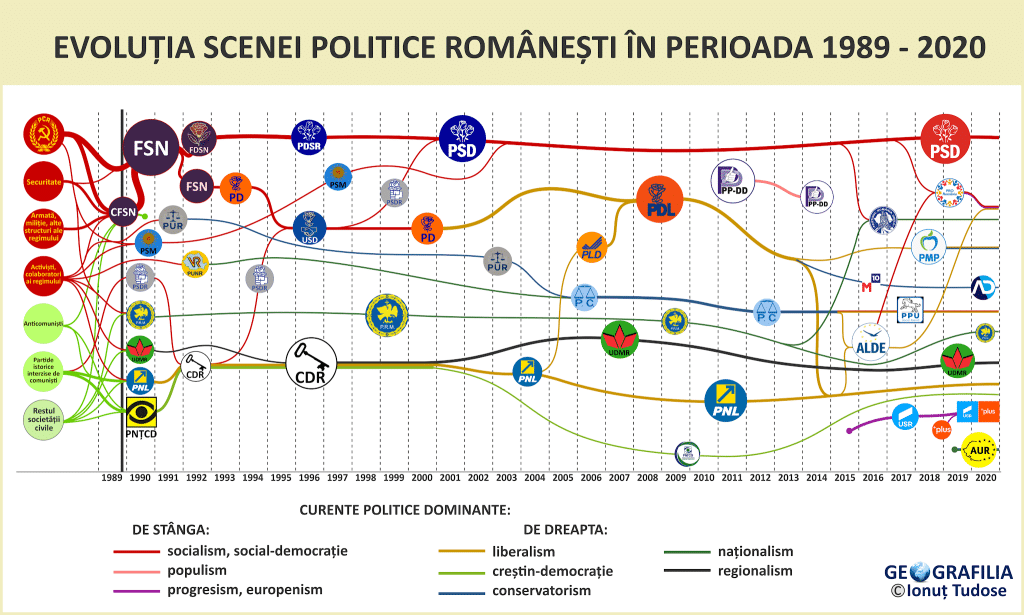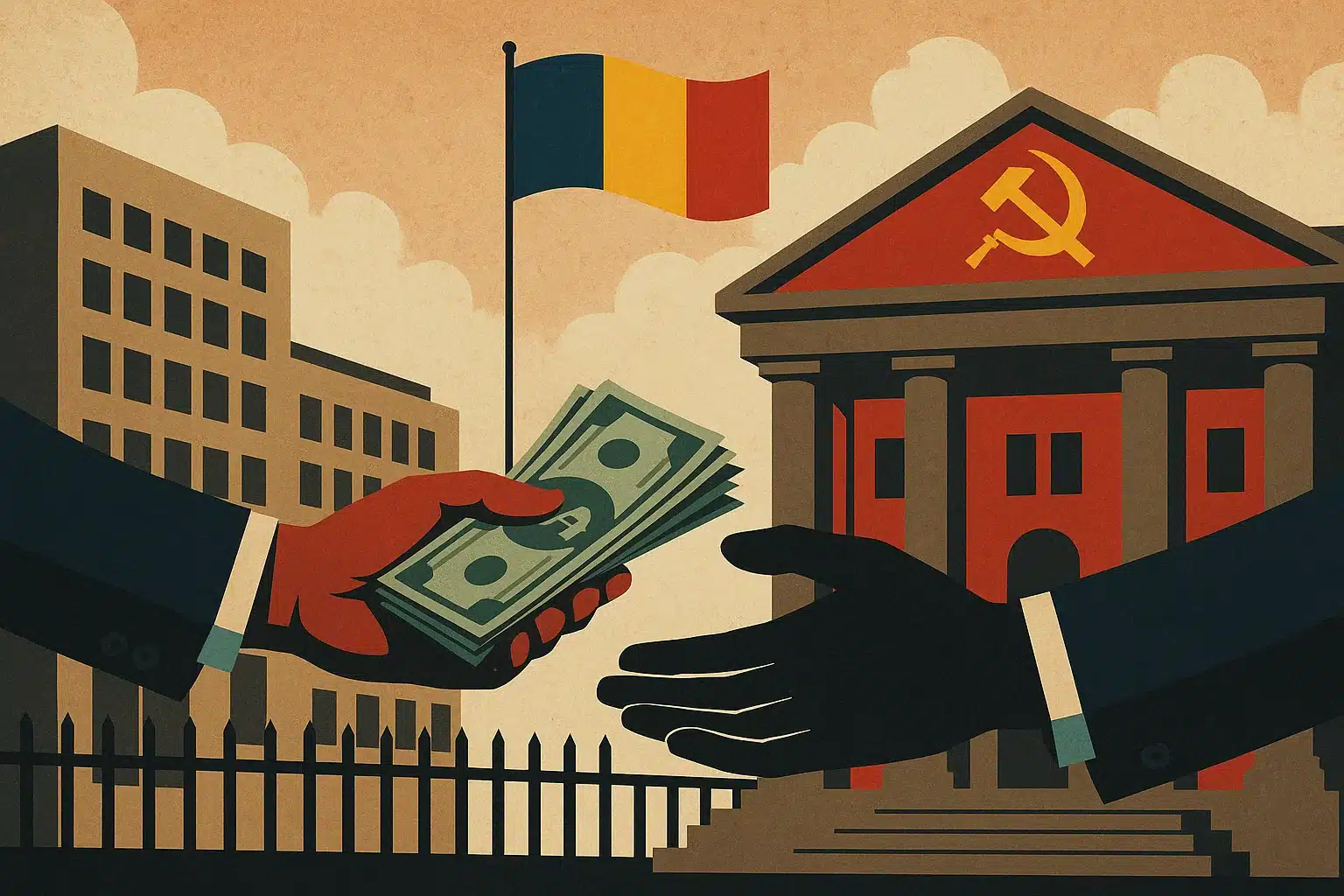An all-out war has been waged between the unapologetic, free-market machinations of American PACs and the suffocating, state-controlled systems engineered by Romania’s post‑1989 socialist politicians. This is not a battle fought on the surface of campaign rhetoric but one that delves into the very mechanics of power, money, and corruption. The aggressive clampdown on independent funding channels in Romania, originating from the Călin Georgescu controversy, is designed to strangle any vestige of political dissent that might arise from alternative financing channels.
Across the Atlantic, Political Action Committees (PACs) have long been emblematic of a system that prizes individual and corporate financial influence: a system where money speaks as loudly as votes. In the United States, PACs are not merely legal entities; they are instruments of political mobilization and a key aspect to balancing politics in the corporate world. This free-market dynamism is a cornerstone of American political identity, even as critics decry its influence on policy-making.
In stark contrast, Romania’s socialist regime has systematically dismantled the very notion of independent political financing. By imposing draconian transparency requirements and stringent reporting rules, Romanian policymakers have effectively outlawed the kind of autonomous funding networks seen in the West (in which Romania is seemingly desperate to become a Western nation). This deliberate suppression is less about ensuring accountability and more about consolidating power through centralized, opaque channels that favor entrenched interests.
The real battle, therefore, is not simply one of ideological differences between capitalism and socialism; as such, it is a brutal contest over who controls the money and, by extension, the political narrative. Romania’s aggressive war against PACs is a strategic maneuver to eliminate any financial mechanism that might disrupt a system already rigged for backdoor corruption, a reality that remains as hidden as it is insidious.
A Preamble on Romanian Socialists
This article may anger a lot of Europeans because I have persistently said the word “socialist” – and as we all know, that’s an “icky” word only used by far-right trolls. So, in an effort to debate my stance as someone who has no political affiliation or voting power in either the United States of America or Romania…
The current cadre of Romanian politicians is best described as socialists because they are essentially bred from the same group that once controlled the state apparatus before 1989. Their roots in the old regime have not been entirely severed; instead, they have been woven into a convoluted mess of alliances and party mergers that obscure their true origins. This intricate network, steeped in the legacy of state control and centralization, creates a system that is nearly impenetrable for the average voter to decipher.

These political actors have skillfully rebranded themselves to mask their past, using modern rhetoric and progressive labels as a veneer over their inherited authoritarian practices. Yet beneath this surface, the same mindset and strategies of centralized power persist, ensuring that the political landscape remains firmly in their grasp.
The complexity of these alliances and mergers leaves voters in a state of confusion. With political parties frequently shifting allegiances and morphing identities, it becomes nearly impossible for citizens to trace the true lineage of power or hold any single entity accountable. This opacity is not accidental; it is a deliberate strategy to maintain control while avoiding direct scrutiny.
American PACs: A Celebration of Capitalist Power
The origins of PACs in the United States can be traced back to the 1940s, when legislative restrictions such as the Smith-Connelly Act forced labor unions and other interest groups to seek alternative methods for influencing elections. The Congress of Industrial Organizations pioneered this approach, setting the stage for what would become a cornerstone of American political finance.
Legal reforms in the early 1970s, most notably the Federal Election Campaign Act (FECA) of 1971 and its amendments in 1974, institutionalized PACs by establishing clear guidelines and contribution limits. These legislative measures not only legitimized PAC activity but also structured the framework through which unions, corporations, and other interest groups could participate in the electoral process.
The political landscape underwent a seismic shift in 2010 when landmark court decisions – Citizens United v. Federal Election Commission and Speechnow.org v. FEC – ushered in the era of Super PACs. These rulings dismantled previous financial constraints, permitting Super PACs to accept unlimited contributions from individuals, unions, and corporations for independent expenditures.
In today’s electoral environment, the influence of PACs is undeniable. During the 2024 election cycle, more than 2,400 Super PACs raised billions of dollars, underscoring the sheer financial might of American capitalism.
Romania’s Campaign Finance Revolution: A Socialist War on PACs
Since the fall of communism in 1989, Romania’s socialist politicians have pursued a campaign finance framework designed to eliminate any semblance of independent political funding. In this system, every donation must be meticulously recorded and reported, a requirement that effectively precludes the emergence of PAC-like entities.
Romania’s regulations mandate that all political donations be logged with specific details, from the exact date of contribution to the identity of the donor. Political parties are legally required to publish lists of contributors whose cumulative donations exceed a set threshold, ensuring that every financial transaction is visible to both the public and oversight authorities. This rigid transparency protocol is touted as a “safeguard against corruption,” yet it simultaneously stifles any independent political fundraising that could challenge the established order.
Despite the iron-clad transparency protocols, most Romanians have never been adequately educated about the core principles of anti-corruption and ethical governance. The education system and media narratives have long shunned robust civic instruction, leaving citizens with a superficial understanding of what true accountability should entail. As a result, a deep-seated trust in the state has taken root, one that blinds many to the underlying hypocrisy of their political leaders. It is not entirely their fault; conditioned by a system that favors state-sanctioned narratives, they find it difficult to recognize when the promise of transparency is used merely as a veneer to mask corrupt practices.
“Everyone I disagree with is a Russian bot or an American imperialist!”
The Romanian system bans virtually all forms of foreign donations, except for narrowly defined exceptions involving material goods, and prohibits trade unions and religious organizations from participating in political financing. Anonymous donations are capped at a virtually inconsequential percentage of the state budget, rendering any attempt to form a grassroots funding entity practically impossible. Such measures ensure that the only permissible channels for campaign financing are those tightly controlled by the state apparatus.
Recent regulatory developments have only intensified this clampdown. The Government Emergency Ordinance No. 1/2025, for instance, introduced sweeping changes aimed at preventing undue voter influence by mandating strict disclosures on political advertising. Oversight is enforced by the Permanent Electoral Authority (PEA), which, along with other institutions like the National Integrity Agency.
The Government’s new measures have coincided with a twist: billionaire Elon Musk, acting purely as a private citizen, has openly expressed concerns about Romania’s election integrity and the role of USAID financing in promoting highly liberal ideals within the country. Musk’s social media posts, which extend support to Romanian politician Călin Georgescu, have drawn sharp criticism from Romanian officials. Foreign Minister Emil Hurezeanu has gone as far as to claim that these messages constitute interference in the internal politics of another state – a preposterous assertion that smacks of political maneuvering. Such rhetoric appears to be yet another tactic by Romania’s socialist regime to tighten its grip on a politically censored electorate, diverting attention from its own questionable practices while stoking nationalist fervor.
Political Integrity Under Siege
In the United States, I will admit that the influence of PACs is a double-edged sword. On one hand, these committees underscore the potency of free-market principles, allowing citizens and corporations alike to directly participate in the political process. On the other hand, the massive financial sums involved often raise serious questions about the disproportionate influence of money on policy decisions. The sheer scale of Super PAC contributions during recent election cycles, with billions of dollars flowing into political campaigns, casts a long shadow over democratic integrity.
Conversely, Romania’s stringent campaign finance regulations are designed to promote a high degree of transparency, yet they inadvertently pave the way for a different kind of corruption. By banning independent financing bodies like PACs, socialist politicians have not eradicated corruption: they have simply relocated it.
The resulting system is one where every financial transaction is scrutinized on paper, but the opaque, backdoor channels remain unchallenged. This controlled transparency often serves to obscure rather than illuminate the true origins of political power.
The divergence between the American and Romanian systems ultimately reflects broader questions about the nature of democratic accountability. In the United States, the overt presence of PACs and their undeniable financial clout underscore a democracy deeply intertwined with free-market capitalism, even if it sometimes comes at the expense of equal representation. Meanwhile, Romania’s rigid, state-sanctioned framework, ostensibly designed to safeguard integrity, often conceals a web of hidden transactions and unregulated influence – a modern twist on the age-old adage that absolute power corrupts absolutely.
The war on PACs in Romania is, therefore, not a straightforward crusade against corruption. Rather, it is a calculated, ideological maneuver intended to centralize power and mute dissent under the guise of transparency. While the American system may be tainted by the corrosive influence of money in politics, it at least allows for public debate about those very influences. In Romania, however, the battle has been waged behind closed doors, leaving citizens to wonder whether the promise of transparency is merely a smokescreen for an even more insidious abuse of power.
I cannot vote in Romania, but I do have empathy for those voters who are caught in this messy power play. The at end of the day, the average citizen will suffer the consequences of their politician’s actions.
